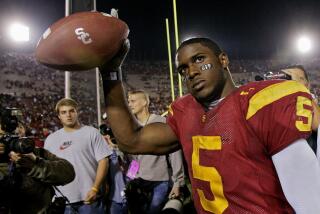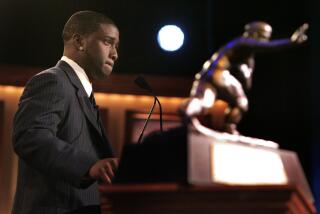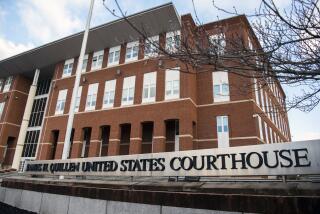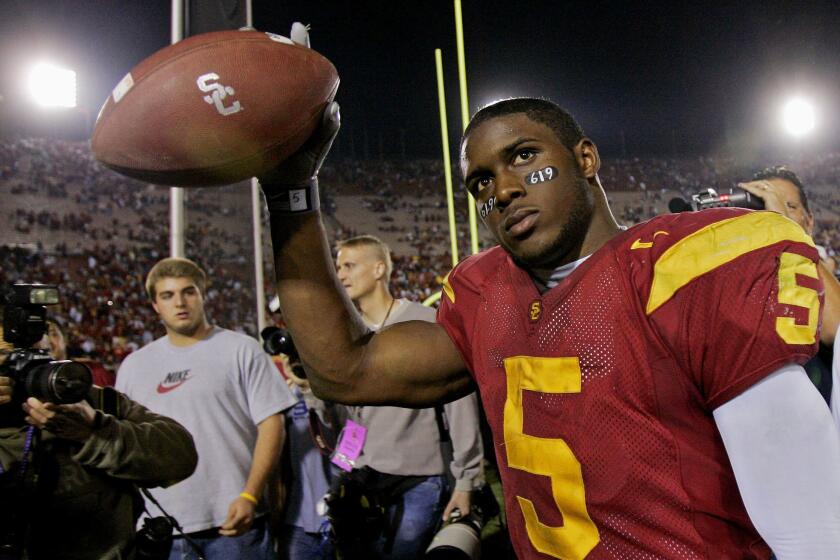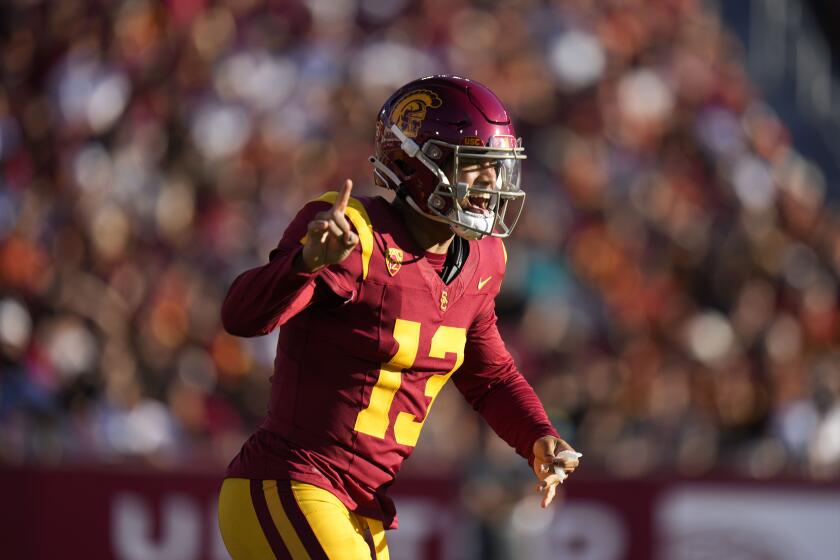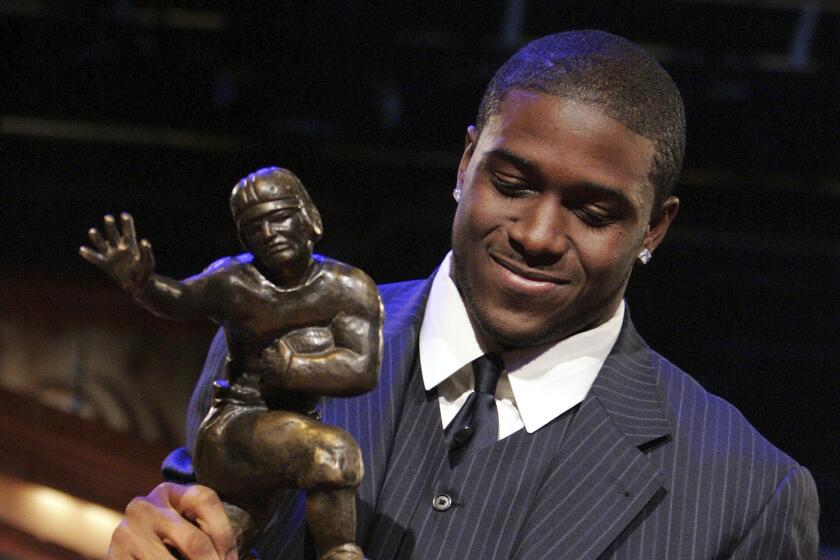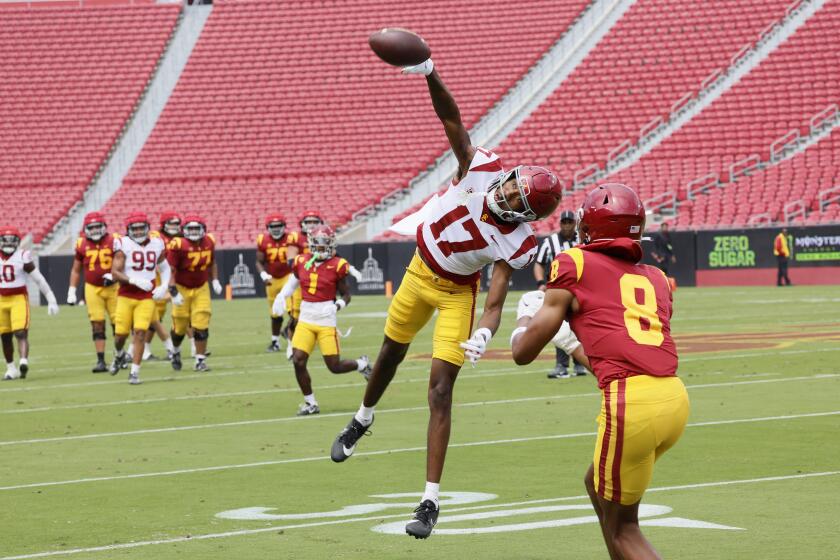President Mark Emmert defends NCAA process that led to sanctions against USC and Todd McNair
During a videotaped deposition played in court Tuesday, NCAA President Mark Emmert defended the process that led to wide-ranging sanctions against USC and former assistant coach Todd McNair in the Reggie Bush extra benefits case.
“I have seen nothing that has convinced me that the committee on infractions or the appeals committee should’ve found any other answer in that case,” Emmert said.
The video highlighted the sixth day of testimony at the Stanley Mosk Courthouse in McNair’s defamation trial against the NCAA.
McNair’s attorneys deposed Emmert last month after Los Angeles Superior Court Judge Frederick Shaller rejected the NCAA’s attempt to block the session.
At issue is a comment Emmert made to USA Today in December 2010: “Everybody looks at the Reggie Bush case and says, ‘It took them a long time.’ But they got it right, I think.”
In a court filing earlier this year, McNair’s attorneys described the president as “one of the NCAA employees who participated in the character assassination of Mr. McNair.”
But the questions by McNair attorney Bruce Broillet expanded beyond dissecting the statement.
Emmert acknowledged a February 2010 email by Shep Cooper, NCAA liaison to the infractions committee, that called McNair a “lying, morally bankrupt criminal” was “ill-advised and inappropriate and that certainly had material ramifications on him.”
Cooper is listed as director of the NCAA’s Office of the Committee on Infractions. Though Emmert couldn’t recall the year Cooper’s position changed, the president testified he “reports to the managing director and is no longer in charge of that office.”
Emmert said the NCAA didn’t review the McNair enforcement proceeding for potential malfeasance because “there were no objections in the system” to the case’s handling.
Jurors, who have struggled to remain engaged during video depositions, appeared to take few, if any, notes during Emmert’s testimony. The final 30 minutes of the hour-and-a-half tape will be played Wednesday.
Earlier in the day, Brian Halloran, an infractions committee member in the USC case, agreed during cross-examination by Broillet that banning the Trojans from television wasn’t realistic.
That’s an important point after another committee member, Rodney Uphoff, testified last week sanctions against USC were increased to a two-year postseason ban and 30 lost scholarships over three years as a compromise within the committee to drop the possible television ban.
“I don’t think the TV ban was seriously considered at any point in time,” Halloran said. “I’m speaking for myself. I can’t imagine why it would be.”
An email from Cooper to Halloran in May 2010 said penalties were increased “in lieu of” a television ban.
McNair’s legal team has linked increased penalties against USC — they jumped from a one-year postseason ban and six lost scholarships outlined in a February 2010 email — to the committee’s eventual finding of unethical conduct against McNair.
Halloran termed McNair’s one-year show-cause penalty as a relatively minor punishment, rating it as a two on a scale of 10.
“If anything,” Halloran said, “it was probably on the lighter side of what he could have expected to receive.”
McNair contends the penalty ended his college and professional coaching career.
Twitter: @nathanfenno
More to Read
Go beyond the scoreboard
Get the latest on L.A.'s teams in the daily Sports Report newsletter.
You may occasionally receive promotional content from the Los Angeles Times.
